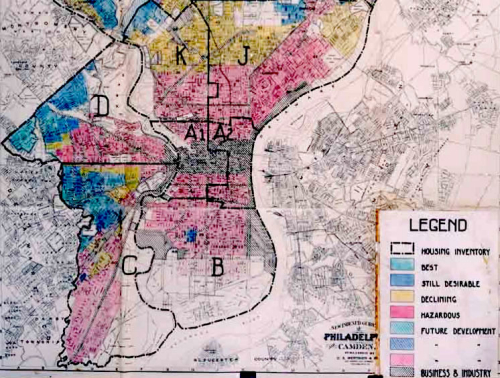Jun 14, 2015 Filed in:
Technology IntegrationI hope that we can start with the premise that technology literacy is an essential content area in K12 education.
Reflect on how different this world is from 10 years ago - before smart phone / tablet technology. Or how different the world is from 20 years ago with the eruption of the World Wide Web; or 30 years ago with the personal (consumer) computer revolution. How we communicate, learn from and with each other, collaborate, research, shop, aggregate, curate, discern… almost everything is very different. We cannot expect to teach as we were taught.
Granted, there is considerable disparity between schools, school systems and segments of societies. Most classrooms, most days are not significantly different today than they were 40 years ago, especially with regard to what the students are doing. At educational conferences, we see great examples of modern learning activities, but there is that nagging feeling that this only represents a small group of students and often only for a week or two out of the entire year.
My essential question after attending the tech conferences is:
How do we enhance education in a systemic fashion, and sustainable fashion?
Earlier this year, a good friend and fellow ADE Lucy Gray published an About.com article: Tips for Educational Technology Coaches that provided some great suggestions about pursuing excellence as a Technology Leader in the local school.
For me this article triggered a question: Do education policy makers recognize just how important a Technology Specialist, Technology Integrator, or Technology Innovation Coach is at the local school level?
Read More...Tags: innovation, technology literacy, leadership, Policy, Political Action
Jan 31, 2015 Filed in:
PolicyA former student and friend shared a Norwegian news article with me and asked me what I thought… a Facebook question and response turned into a blog post. You may want to start with the new article:
The school has a new task, namely to educate parents
Even though this article reports on education in Norway, we have seen similar policies in the good old U.S. of A. We have often said that student success has a high correlation with stable, healthy home environments and supportive, educated parents. So the big question is can (or should) teachers be held responsible or accountable for parent learning or educational involvement?
The Denmark regulation states: The school and now will: facilitate cooperation with the home and ensure that parents / guardians share responsibility in schools. Good teachers should already be doing that. The concern is when it becomes law and must be documented, assessed and enforced.
Read More...Tags: Political Action, accountablity, educational reform, classroom, collaboration, leadership, Policy
Feb 16, 2012 Filed in:
Personal ReflectionsI am often stimulated to deeper thought about the implications of the use of technology by Leo Laporte and his guests at one of my favorite podcasts, This Week in Technology
In last week’s episode, Leo used one of those inflammatory types of expressions that cause a gut reaction: REDLINING the INTERNET.
Redlining from Wikipedia: It describes the practice of marking a red line on a map to delineate the area where banks would not invest; later the term was applied to discrimination against a particular group of people (usually by race or sex) no matter the geography.
Now this may be a bit of exaggeration used to make a point. But it certainly got me thinking!
He said that the effect of our social graphs and digital footprints have become a sort of Social Redlining – how it works is this…
- We search for certain things (cookies record this)
- We click on certain links (cookies record this)
- Then when we load in a new webpage, the web server ‘serves up’ advertisements that correspond with the ‘profile’ or social graph that you have subconsciously created.
Anyone that has shopped for bird feeders on Amazon, for instance, has gotten the email: “Customers who have shown an interest in bird feeders might be interested in the following products: (numerous related products follow).
For most of us, this is a good thing. It is a given that websites are going to serve up ads. That is how they pay the expenses of gathering content, hosting it, etc. Most of us would rather see ads for stuff we are interested in, so even the consumer benefits.
What was interesting about this though is it has an amplifying, steering affect, which may become a drawback. It may narrow your choices and restrict your experience in a bad way. If you click on one style of music several times, you may never be exposed to other styles. The marketers are making an assumption about you, which may or may not be completely true and like a self-fulfilling prophecy you become more ingrained in the things that were once only a part of the whole picture of who you are.
I am not suggesting that we explicitly teach students to change the way they click and search the internet. But I do thing there is value in discussing this as we talk about modern economics, marketing, consumer behavior and technology (media) literacy.

image found in Wikipedia article • originally from the National Archives
Reviewing an article
Reviewing an article about Google’s unifying their multitude of services has particular relevance to this idea. One of the results of this recent change in policy is to unite the data they generate to create what will certainly be one of the biggest databases of human activity and interests ever created.
What can be done with that information? "The more data and the more signals that you know about any particular cookie or users, the more predictive you can be," said Mr. Wheeler, who expects to see Google release advertising products that tap into the social and interest graph the privacy policy is enabling it to build. "Their data set is being stitched together in a way that I think can bring tremendous value to advertisers."
So can your social graph turn into a sort of Redlining of the Internet? What do your clicks and searches say about you?Tags: technology literacy, branding, leadership, identity, keyword, tag





